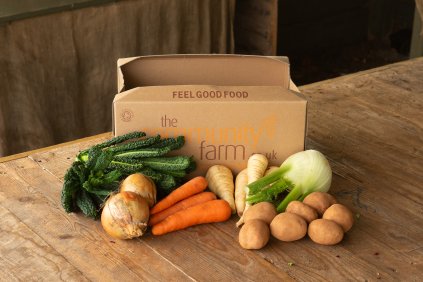I still remember my shock, aged eight, learning in a History lesson of half-starved children as young as six, labouring down mines in England and Wales. My immediate thought was “how could the grown-ups let this happen?”
Social justice campaigning succeeded in outlawing these working practices in Britain from the mid 1800s. Yet in the industrialised agriculture system of today, appalling working practices remain. An inspection of just 30 packhouses in the UK in 2011 led to 8 prohibition notices, 44 Improvement Orders and 2 prosecutions because of poor treatment of workers rights. Children from Romania were found working in freezing conditions on fields in Worcestershire in 2010. Occasionally, as with the tragic drowning in 2004 of 23 Chinese workers picking cockles in Morecambe Bay, these working conditions hit the headlines.
The supermarket bosses claim this is ‘consumer-driven’ - they are only giving us the cheap food we demand. It’s often implied that organically grown and ethical produce is only for an elite few. Yet many of us will spend nearly £4 for a coffee, £3 for a ready-made sandwich, and £7 for a takeway. Compared to these items, organic seasonal veg for home-cooking can be an affordable choice. And anyway, everyone needs a living wage and everyone needs good food. So how do we escape this vicious cycle?
Thankfully, where food is concerned, with every meal we eat we can vote for a better system. At The Community Farm we source only from organic ethical suppliers that we know. Our imports come from wholesalers who link directly with ethical organic growers. All our own workers are paid at or above National Living Wage Foundation pay rates.
Last month a report from Ethical Consumer revealed widespread abuse of workers rights in the Almeria and Huelva regions of Spain, where much of the supermarket fruit and vegetable imports come from. Migrant workers are living in makeshift accommodation, working in unsafe conditions, refused minimum wage, sacked if they challenge their working conditions, and regularly abused or sexually assaulted. Child labour was not found – which is a step in the right direction.
As more people learn about the abuses that happen, more of us can make the choice to not be complicit. The workers who produce our food should be fairly treated.
By Angela Raffle, Chairperson at The Community Farm
Sources
Alex Kleiderman BBC News Report 25 October 2010
Child onion pickers highlights exploitation problem. https://www.bbc.co.uk/news/uk-11617664
Produce of Exploitation; UK supermarkets and migrant labour in Southern Spain. March 2023 Ethical Consumer














